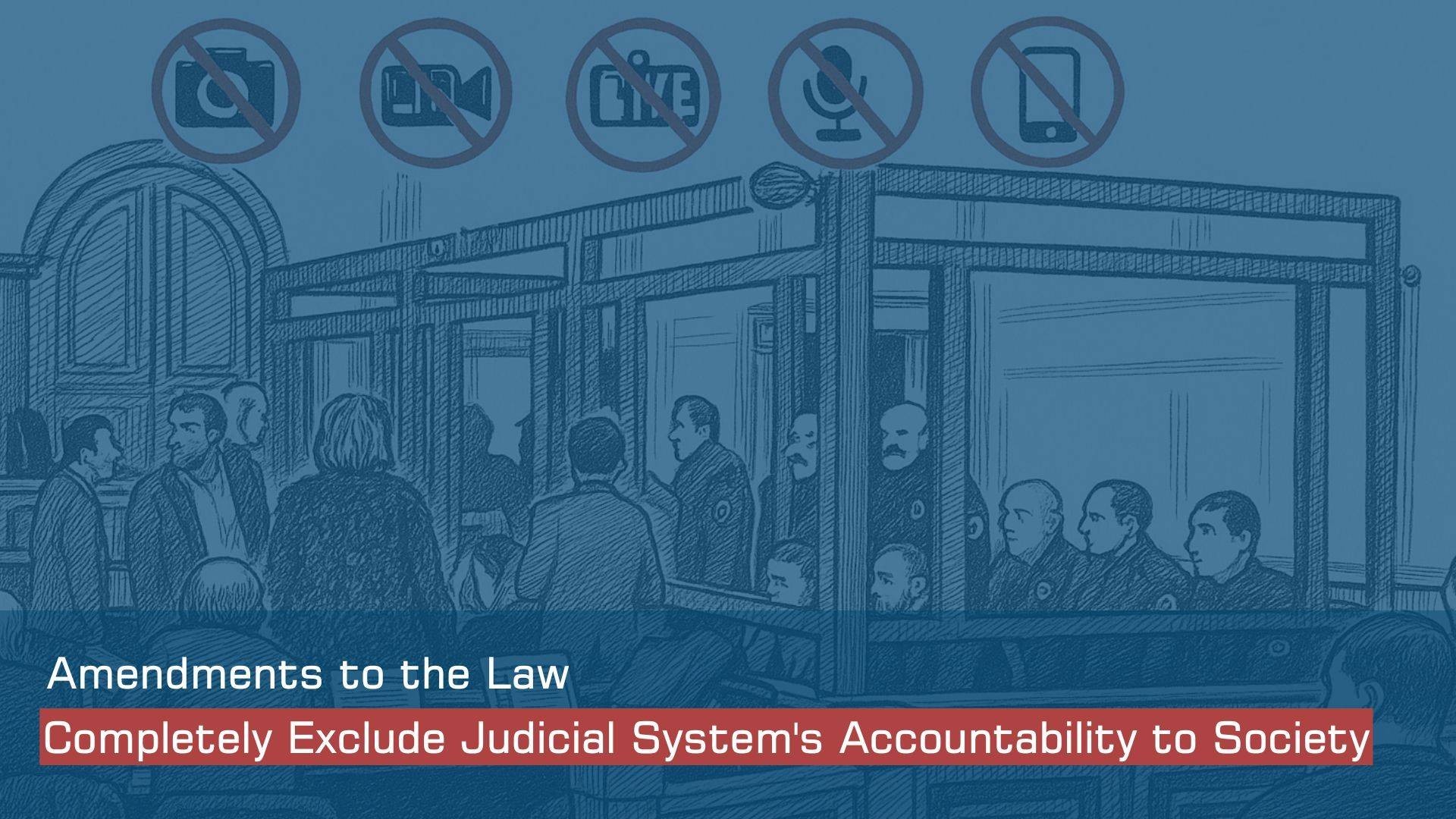საერთო ცხელი ხაზი +995 577 07 05 63


We respond to the amendments made to the Organic Law "On Common Courts." These amendments substantially expand and simplify mechanisms for punishing judges, thereby further strengthening the power of the judicial clan. At the same time, the amendments return to the reality of 2007-2013 in deteriorated form and practically completely prohibit providing documented information to the public about judicial processes.
According to the amendments to the Organic Law "On Common Courts" adopted on June 26, 2025:
The degree of power consolidation within the system increases - the number of judge members in the High Council of Justice (HCoJ) will increase from 9 to 12; the Independent Inspector's Office will be abolished and disciplinary proceedings against judges will be conducted by the secretary of the HCoJ; The terms of office and powers of court chairpersons and heads of collegiums/chambers will be increased, and the position of deputy court chairperson will be restored; the prohibition on electing more than 4 Council members in any 6-month period will be abolished.
Substantially simplified procedure for persecution and dismissal of the judges - "improper performance of duties" returns as a disciplinary offense and the judge's right to demand publicity of the disciplinary process is abolished; the measure for disciplinary punishment increases, specifically, salary deduction from 10% to 50%; judge assignment periods increase to a total of 5 years; judges fall into complete professional isolation. The amendments prohibit practically any professional communication with a judge regarding the judge's participation in an event.
Justice is closed to media and society - photo-video recording and broadcasting in court buildings, including court yards, is prohibited and will be exclusively available only to the court and persons authorized by it. Media and journalists will be given the opportunity to video record sessions only if the High Council of Justice decides so. Photography by journalists is completely prohibited. Judicial acts will become public in relevant cases only after the final decision is made; the obligation of publicity for a whole range of decisions made by the High Council of Justice is abolished.
Judges' salaries substantially increased - salaries of the judges ranged from 4,000 to 7,000 GEL. With the amendments, salaries will increase in the range of 10,512 to 14,600 GEL (figures are indicated without bonuses). The compensation principle changed, and the judge's salary is linked to the basic official salary of the respective year's budget (with coefficients of 7.2-10).
The discussed amendments achieved complete consolidation of power in the judicial system at the institutional level. Specifically, on one hand, the powers of persons in administrative positions were further increased, while on the other hand, the already weak independence guarantees of individual judges were reduced. Moreover, by reducing basic accountability mechanisms, further processes of power consolidation remain beyond public oversight. The indirect abolition of the right to public hearing of cases by prohibiting video/photo recording throughout the entire court territory is particularly noteworthy. This will severely damage the right to a fair trial of victims of "Georgian Dream's" repression and public awareness of their judicial processes.
It should be noted that with these hastily adopted amendments, "Georgian Dream" demonstratively abolished positive regulations implemented at various times within the framework of the European integration process.
The supported amendments substantially worsen the institutional arrangement of the judiciary, violate the constitutional principle of separation of powers, as well as the constitutional guarantees of judicial independence. At the same time, the amendments contradict the right to a fair trial and indirectly deprive Georgian citizens, including victims of "Georgian Dream's" repression, of their right to a public hearing of their cases.
Signatory Organizations
The website accessibility instruction